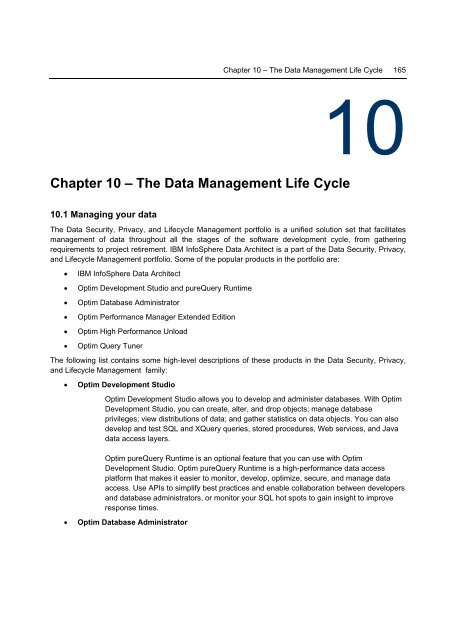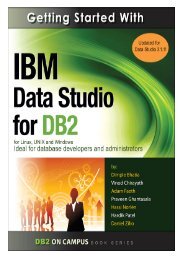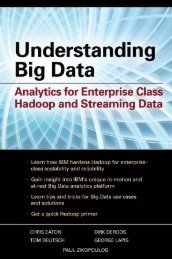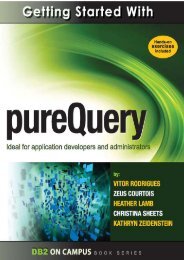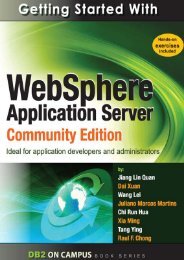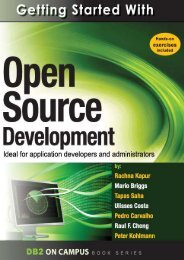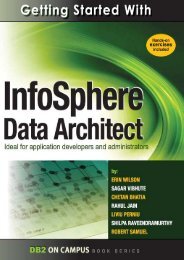Getting Started with InfoSphere Data Architect
Create successful ePaper yourself
Turn your PDF publications into a flip-book with our unique Google optimized e-Paper software.
Chapter 10 – The <strong>Data</strong> Management Life Cycle 165<br />
10<br />
Chapter 10 – The <strong>Data</strong> Management Life Cycle<br />
10.1 Managing your data<br />
The <strong>Data</strong> Security, Privacy, and Lifecycle Management portfolio is a unified solution set that facilitates<br />
management of data throughout all the stages of the software development cycle, from gathering<br />
requirements to project retirement. IBM <strong>InfoSphere</strong> <strong>Data</strong> <strong>Architect</strong> is a part of the <strong>Data</strong> Security, Privacy,<br />
and Lifecycle Management portfolio. Some of the popular products in the portfolio are:<br />
• IBM <strong>InfoSphere</strong> <strong>Data</strong> <strong>Architect</strong><br />
• Optim Development Studio and pureQuery Runtime<br />
• Optim <strong>Data</strong>base Administrator<br />
• Optim Performance Manager Extended Edition<br />
• Optim High Performance Unload<br />
• Optim Query Tuner<br />
The following list contains some high-level descriptions of these products in the <strong>Data</strong> Security, Privacy,<br />
and Lifecycle Management family:<br />
• Optim Development Studio<br />
Optim Development Studio allows you to develop and administer databases. With Optim<br />
Development Studio, you can create, alter, and drop objects; manage database<br />
privileges; view distributions of data; and gather statistics on data objects. You can also<br />
develop and test SQL and XQuery queries, stored procedures, Web services, and Java<br />
data access layers.<br />
Optim pureQuery Runtime is an optional feature that you can use <strong>with</strong> Optim<br />
Development Studio. Optim pureQuery Runtime is a high-performance data access<br />
platform that makes it easier to monitor, develop, optimize, secure, and manage data<br />
access. Use APIs to simplify best practices and enable collaboration between developers<br />
and database administrators, or monitor your SQL hot spots to gain insight to improve<br />
response times.<br />
• Optim <strong>Data</strong>base Administrator


